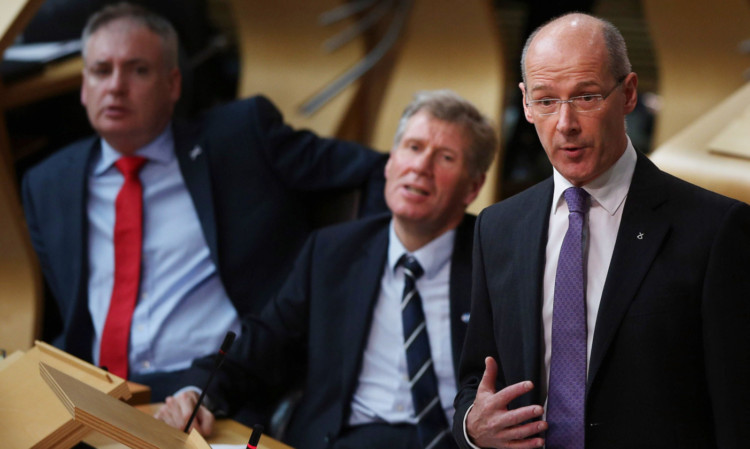Scotland’s Finance Secretary has pledged £20 million in an attempt to mitigate the negative effects of the so-called “bedroom tax”.
John Swinney said the money, funded partly by savings within his enterprise department, will allow councils to increase discretionary housing payments to those affected by the UK Government’s policy.
Although the pledge was made during the first reading of next year’s Scottish budget at Holyrood, the cash will be handed over this year, Mr Swinney said.
He told MSPs: “I will provide £20 million to fund Shelter Scotland’s proposal to help those struggling most with the cost of the tax.
“This funding will enable local authorities to increase discretionary housing payments to meet some of the implications of the ‘bedroom tax’.”
Mr Swinney also said the SNP Government would help mitigate Westminster welfare reforms but opposition accused him of putting Scotland “on pause” until next autumn’s independence referendum.
The finance secretary said his draft budget the last before next September’s vote would pay for a national performance centre for sport.
He also pledged to continue the council tax freeze, along with universal benefits like free prescriptions.
Mr Swinney told MSPs the Scottish Government’s conventional capital budget was being reduced by 26.6% as ministers at Westminster seek to reduce the UK’s spending deficit.
Labour’s shadow finance secretary, Iain Gray, claimed £50 million was needed to tackle the “bedroom tax”.
He said the Scottish Government’s spending plan didn’t address a rise in Scottish unemployment but was a “don’t-rock-the-referendum-boat budget”.
Mr Gray added: “Bring back a real budget for jobs and a budget which banishes the ‘bedroom tax’ from Scotland this year, next year and the year after that.”
Scottish Conservative finance spokesman Gavin Brown said colleges “used to get £560 million, this year they get £522 million”. He added: “How on earth does going from £560 to £526 amount to an increase?”
Liberal Democrat leader Willie Rennie said the Government has the “wrong priorities”.
The Scottish Greens said the budget was flat and lacked ambition. Shelter Scotland and Citizen’s Advice Scotland (CAS) both welcomed the support for people hit by the “bedroom tax”.
Shelter Scotland’s director, Graeme Brown, said: “We are delighted that the Scottish Government has listened to Shelter Scotland’s campaign and is making £20 million available to help thousands more households in Scotland affected by the so-called ‘bedroom tax’.”
Margaret Lynch, chief executive of CAS, added: “Such support must not be seen as exceptional or a one-off.”
CBI Scotland’s assistant director, David Lonsdale, said the budget contained “a number of positive announcements”, citing affordable housing and the council tax freeze in particular.
Dr Sam Gardner, head of policy for WWF Scotland, welcomed an extra £20 million investment in cycling.
However, Colin Howden, director of Transform Scotland, said: “Questions have to be asked to whether a £20 million increase in cycle investment will lead to a decrease in spending in other vital areas of sustainable transport.”
Mary Taylor, the chief executive of the Scottish Federation of Housing Associations, said she was “encouraged” at a commitment to invest more than £1.35 billion in affordable housing over four years.
